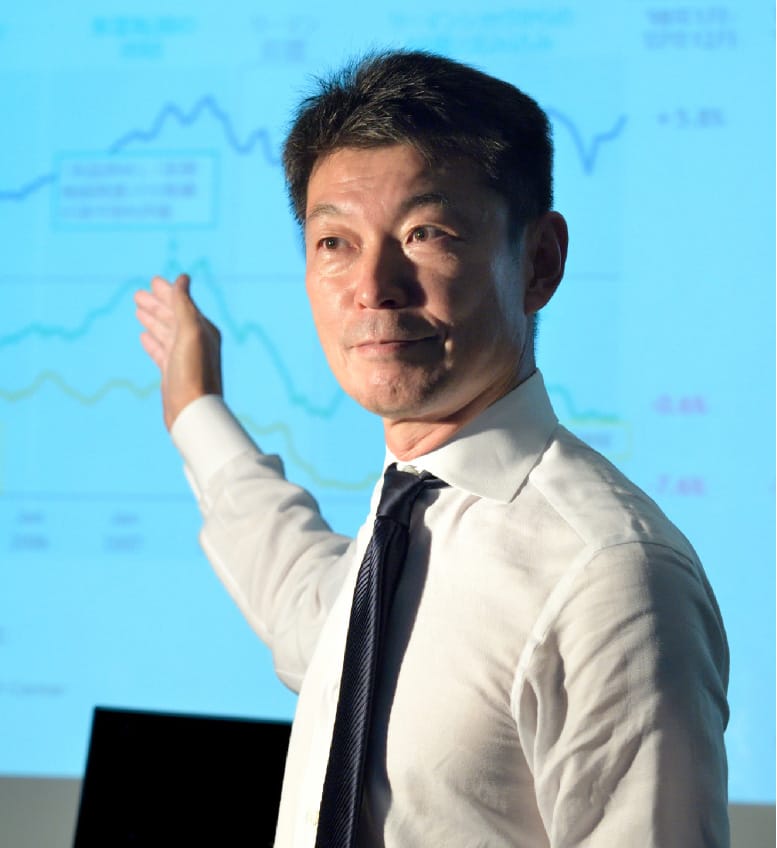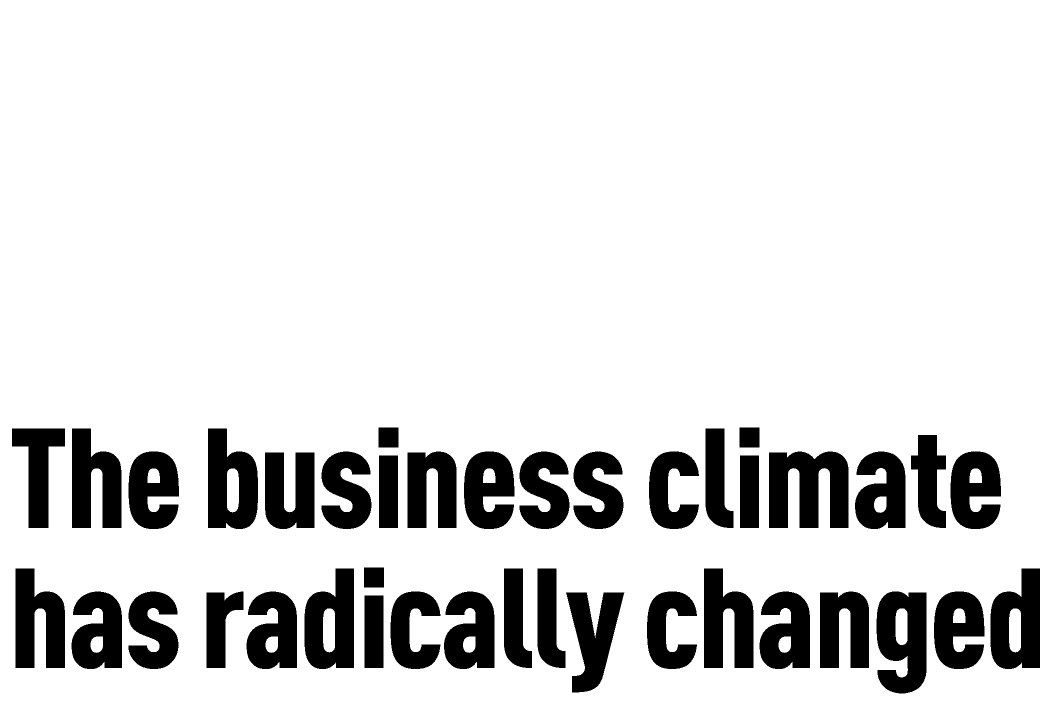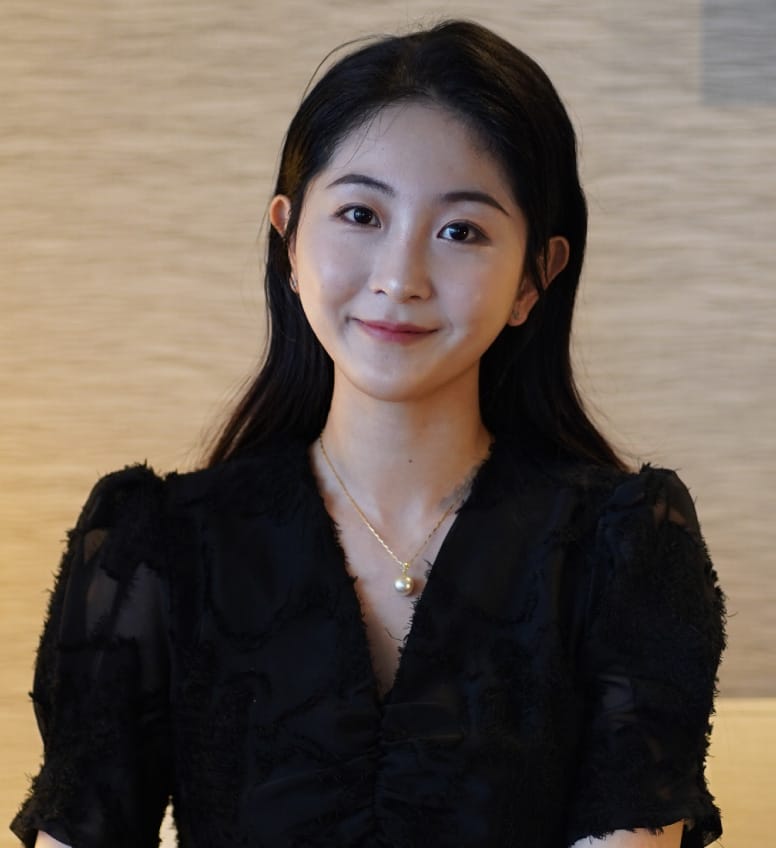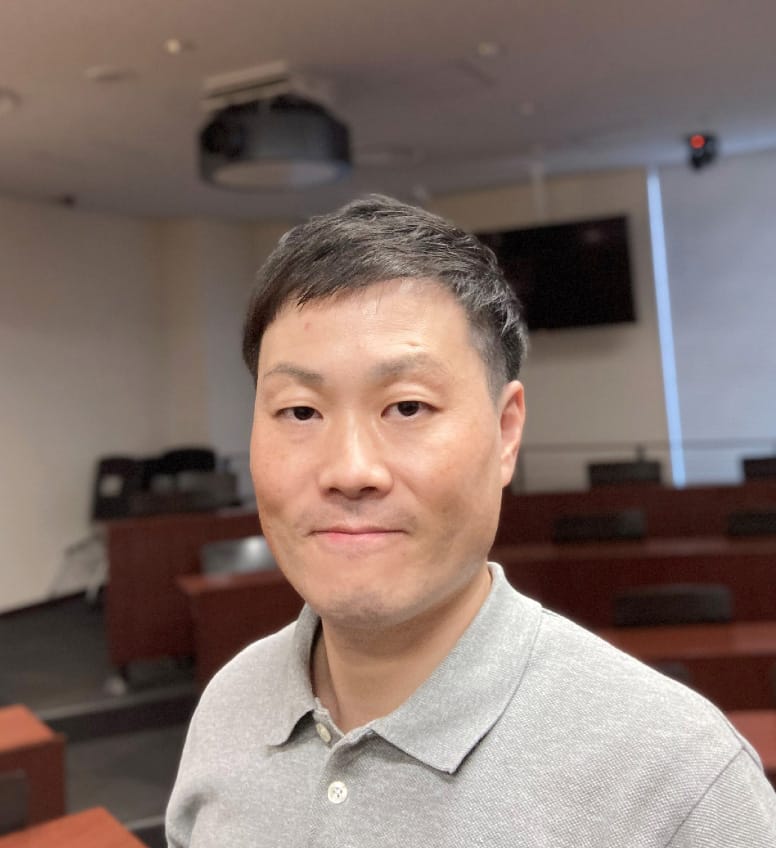Everything and everybody is moving faster
Q: How has the pandemic changed business?
What are the changes that are going to reshape the future of business?

The speed of decision making has been accelerated, shifting into a higher gear. Changes in consumer trends and their purchasing behavior have become faster, and both the scope and speed of executive decision making in corporate management has grown. But all the key changes that have occurred or are occurring during the health crisis have been long in the making. Signs of these changes, including the growing influence of the core values of the millennial generation, which are driving the trend toward carbon neutrality and digital transformation (DX), were evident before the pandemic. The crisis has only accelerated these changes.
Take medical representatives (MRs), for instance. They used to focus their sales efforts on visiting doctors as frequently as possible and building close ties with them. But opportunities to pursue this approach as a way to immediately generate sales have decreased sharply. One factor behind this change is a generational shift among doctors. More importantly, however, a larger number of busy doctors now view time spent on meeting MRs as time wasted. This has inspired MRs to focus their sales efforts more on their core role, which is to supply valuable pharmaceutical information to their customers in a proper and efficient manner. This change has made it much more important for MRs to make effective use of digital technologies.
In corporate management, companies are now required to have an accurate understanding of the implications of changes that are occurring. They need to be able to detect early signs of changes in the tide as they appear and respond quickly to such changes through effective and proactive marketing efforts. At the same time, it is also vital for companies to have clear ideas about their core missions and strategic goals and take effective action to realize their own vision for the future. From this point of view, it is clearly crucial for companies to have a medium- to long-term management vision that is not tethered to the need for short-term responses to the changing situation. The same is true with governance of a nation. We see growing disparities in national power due to differences in the quality of their future visions and in the speed and accuracy of decision making.
Understand what the driver is
Q: What do these changes mean for businesspeople?
People also need to have good ideas about how things will change in the coming years and know what information is necessary for obtaining such ideas. They must be clear about how the values of industries, companies, society and themselves should be defined and also about their own roles. It is crucial for businesspeople to act on the assumption that changes that transcend the scope of their current knowledge and experience may take place and seek to know and understand diverse viewpoints. By securing more opportunities to explore diverse possibilities, people can enhance their ability to cope with the unknown. It is vital for businesspeople to acquire the ability to learn to understand what is happening and how to respond to it, instead of learning to accumulate knowledge. From this point of view, WBS, which attracts students with widely different sets of knowledge and experience from around the world, can provide an excellent environment for business emergence.
Q: Are there any effective methods for
becoming more adept at predicting and understanding changes?
Keep asking questions. What is the essence of what is happening? What will be the driver of the change? Where is the trend heading? Is the change temporary or universal? Will it be an exponential change? What is related to what and how? Is there anything behind a specific piece of information that is spreading around the world? The key is to know the principal driver of the ongoing changes so that you can get the whole picture of what is happening. When the answer is elusive, it is vital to set up and test hypotheses for the basic process of making business decisions.
In October 2020, for instance, the European Union (EU) announced that a new Carbon Border Adjustment Mechanism will be added to a plan to achieve its 2030 climate targets. It is almost impossible to understand the implications of the announcement without knowing the changes that have been made over years to the EU’s climate policy measures and systems. The proposed mechanism will put a carbon price on imports of a targeted selection of products, mainly from countries with poor environmental performance, to prevent the risk of “carbon leakage.” Carbon leakage means companies based in the EU could move carbon-intensive production abroad to take advantage of lax standards, or EU products could be replaced by more carbon-intensive imports. One factor behind the proposal is the EU’s desire to secure new fiscal resources to finance its policy efforts to promote economic recovery from the damage caused by the pandemic. The EU’s announcement was met with concern from both within and outside the EU. The outlook of the proposal remains unclear.
The driver of the carbon border adjustment initiative is the EU, but its fate could be greatly affected by how the U.S. administration of President Joe Biden will respond to it. Its effects on individual countries will differ significantly from one to another. Top corporate executives should address many related questions, such as how it would affect their countries, corporate fundraising costs and global supply chains.
WBS is a hub of diversity
Q: What are the competitive advantages of WBS?
Although I’m only a novice professor, I would like to cite five advantages of the school. First of all, WBS is a hub of diversity with many students with diverse backgrounds from all over the world. Being immersed in such a learning environment offers a precious experience that could be useful for career development. People who have studied together and eaten at the same table together could become lifetime friends. Friendship knows no borders.
Secondly, WBS offers a valuable opportunity to study in Japan. As a technologically advanced nation, Japan still boasts a competitive manufacturing sector. In the cyber world, U.S.-based GAFA (the four tech giants of Google, Amazon, Facebook and Apple) have become overwhelming leaders. But the convergence of the virtual and real worlds in the manufacturing sector will offer great new business opportunities. In Japan, you can see what is happening on the front line of this revolution. At the same time, Japan is on the leading edge of efforts to tackle various transformative changes that are going to happen in widening areas around the world, including the rapid aging of society and low birthrates. Observing how Japan is dealing with these social challenges will help people in many other countries tackle the same challenges in the coming years.
Another advantage of studying in Japan is the relatively lower living costs and tuition than those in many other industrial nations due to a prolonged deflationary trend in this country.
The fourth advantage is an environment conducive to starting new businesses. Japan is quite friendly to entrepreneurs, with many WBC graduates having launched their own businesses. I’ve heard that there have been cases in which WBS alumni have teamed up to start up a new business. You can also start a business while working for another company as a side or second job.
Lastly, WBS has a flat and open learning environment. There are many subcultures on campus and students can find many ways to enjoy their time here.
Sympathy with the vision
Q: What are the reasons for your involvement in startups?
Tomohiro Fukuzawa, chief executive officer of SkyDrive Inc., a Tokyo-based flying car startup, visited Kazunari Uchida, one of WBS’s celebrity professors, to seek his advice for his business. But Mr. Uchida referred Mr. Fukuzawa to me, saying I would be better suited to advise him. I receive requests from various startups to advise and help them as a mentor. As I talked with Mr. Fukuzawa several times, I was deeply impressed by his grand future vision and strong passion. When I decide whether I want to support a startup, the key question is whether I can sympathize with the vision of the entrepreneur. It makes me happy to help boost a company’s chances of success with my expertise in corporate management.
Shinya Kobayashi, the founder of Farmnote Inc., a startup that uses Internet of Things (IoT) technology to support dairy and stock farming businesses, has a management philosophy that places great importance on contributing to building a sustainable and abundant future for the world and helping people find better ways to live. I sympathize with his desire to ensure that children in the future will also enjoy the scents of the earth he experienced when he was a child. It is wonderful to see young people making all-out efforts to realize their own dreams.
It is rare that a past success helps people open up a new future. I hope WBS students will be bold enough to seek change and move straight ahead toward opening up a new future.












